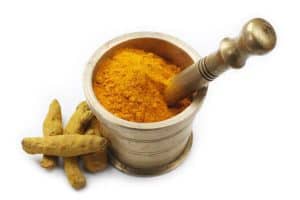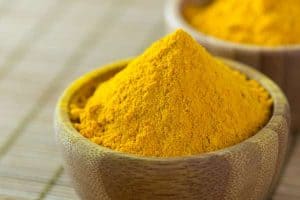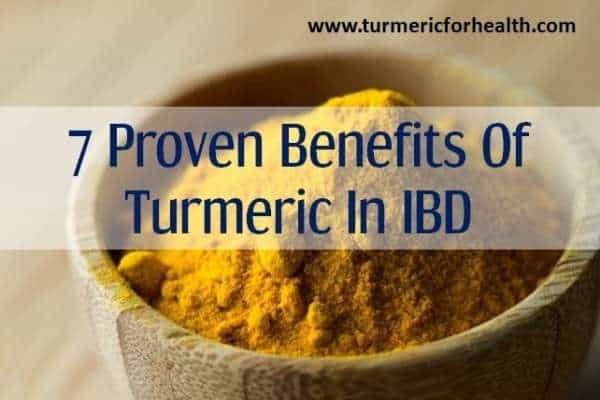Inflammatory bowel disease, as the name suggests, is characterized by inflammatory conditions in the gastrointestinal tract.
It is classified mainly into two types:
- Ulcerative colitis: inflammation occurring in the large intestine
- Crohn’s disease: inflammation occurs anywhere in the gastrointestinal tract ( mouth to anus)
Common symptoms affecting the individuals suffering from IBD are:
- Abdominal cramps
- Fever and fatigue
- Diarrhoea or blood in stools
- Irregular bowel habits
- Weight loss
- Extraintestinal complications: Arthritis, uveitis
The causative factors behind this disease include environmental conditions as well as genetics.
The disease occurs mainly as a result of inappropriate immune response where the immune system attacks the intestinal microflora (healthy microbes in the gut that aid in digestion) as if it were a foreign body and leads to inflammation.
Treatment includes administration of anti-inflammatory drugs, immune suppressants, antibiotics and other medicines given as per symptoms. Surgery is also an option but the effects are temporary.
Table of Contents
- How Does Turmeric help in Inflammatory Bowel Disease?
- 7 Proven Benefits Of Turmeric In IBD
- 1. Curcumin can help treat as well as prevent IBD
- 2. Curcumin is beneficial in Juvenile Crohn’s
- 3. It serves as maintenance therapy for IBD
- 4. Turmeric supports growth of healthy gut microbiota
- 5. Turmeric can serve as a multiple purpose therapeutic agent in IBD
- 6.Novel formulations of turmeric designed especially for IBD
- 7. It ameliorates the complications linked with IBD
- Dosage of Turmeric for IBD
- Precautions
- Conclusion
How Does Turmeric help in Inflammatory Bowel Disease?

It is an everyday item when it comes to cuisines of Asian countries.
It belongs to the ginger family and is available as fresh roots. Turmeric powder and oil are prepared from these roots.
However turmeric is not limited to being a spice, in fact, it is a bundle of treasured medicinal properties.
Traditional medicine, as well as research, proves that the spice has anti-inflammatory, anti-oxidant, anti-microbial, anti-cancer properties, etc.
Treatment of IBD focuses mainly on reducing inflammation which in turn reduces the symptoms. Turmeric is a potent anti-inflammatory agent.
Curcumin, the active ingredient of turmeric confers this property.
However, curcumin free fractions also have anti-inflammatory property.
Curcumin mediates anti-inflammatory property in the following ways :
- Inhibition of COX & LOX enzymes: They regulate biochemical pathways in inflammation. Curcumin inhibits its activity better than painkiller, diclofenac sodium.
- Prevents production of prostaglandins: They are hormone-like substances produced by COX enzymes and control dilation and constriction of blood vessels in inflammation
- Inhibition of pro-inflammatory cytokines: These are cellular proteins released in response to inflammation. Eg: Tumor necrosis factor and interleukin-1
- Preventing migration of immune cells to affected site
- Inhibition of nuclear factor- kappa B: These are a set of proteins that act like switch which can control inflammation and the genes involved in it.
The reason to mention the molecular targets on which curcumin acts is to present the idea that curcumin modulates the same factors as the drugs prescribed for treating inflammation.
A review study mentions that curcumin demonstrates anti-inflammatory action by inhibiting different molecules in inflammation and has been demonstrated to be safe in six clinical trials.
7 Proven Benefits Of Turmeric In IBD
Turmeric and curcumin benefits IBD patients in a number of ways which are mentioned below
1. Curcumin can help treat as well as prevent IBD
Research proves that curcumin manipulates multiple elements of inflammation in order to reduce the development of experimental colitis (inflammation of the colon).
Curcumin’s antioxidant nature helps fight oxidative damage in the bowel occurring as a result of inappropriate immune responses.
In an experimental study , curcumin has been demonstrated to protect the lining of the gut from inflammation by suppressing the activity of nuclear factor-kappaB, preventing migration of immune cells and reducing oxidative stress (imbalance between prooxidant and antioxidant agents).
Curcumin reduced the incidence of diarrhoea, preserved colon health and stimulated the production of anti-inflammatory cytokines.
In another study curcumin when administered prior to inducing experimental colitis is proven to prevent and treat the condition.
In a pilot study , 5 patients with ulcerative proctitis and 5 with Crohn’s disease were given pure curcumin preparations. All the patients with proctitis (inflammation of rectum and anus) improved and discontinued medication while 4 out of 5 patients suffering from Crohn’s showed improvement.
What does this mean?
Curcumin not only suppresses and heals inflammation in IBD but also can prevent the risk of developing IBD.
2. Curcumin is beneficial in Juvenile Crohn’s
Various animal studies suggest that curcumin can have therapeutic implications in human IBD.
Juvenile Crohn’s disease leads to poor weight gain and inhibits the growth of individuals.
A study was designed to examine the effect of an exclusion diet with nutraceutical therapy on IBD and reversing growth failure.
Dairy products, certain grains and food containing carrageenan were eliminated from the diet. Nutraceuticals containing curcumin and other components and a multivitamin were given daily. Probiotics were given twice weekly.
Within 2 months of treatment, the intensity of Crohn’s disease reduced in all patients and all of them discontinued pharmacological drugs.
Some patients were in remission for 4-8 years. This study implies that curcumin taken as a nutraceutical regularly can help ameliorate IBD and prevent its relapse.
What does this mean?
Curcumin is one of the best nutraceuticals you could opt for as an adjunct or alternative therapy for IBD.
3. It serves as maintenance therapy for IBD
IBD is a chronic relapsing condition. Curcumin is famous for suppressing inflammation in multiple ways without causing any side effects.
In this study, patients were given curcumin 360mg 3 or 4 times a day for three months. Not only did curcumin reduce the inflammation but it also prevented relapse.
Researchers concluded that curcumin has great potential in treating and preventing IBD.
A study was conducted the efficacy of curcumin as maintenance therapy in patients suffering from dormant ulcerative colitis. 2g of curcumin was given daily along with other medications.
Out of 43 patients who completed the treatment only 10 suffered from relapse demonstrating curcumin is safe medication in maintaining remission in ulcerative colitis patients.
What does this mean?
Curcumin treatment reduces the incidence of relapse of IBD.
4. Turmeric supports growth of healthy gut microbiota
The intestine is a host to a variety of bacteria that help in digestion and maintaining immune function.
Lack of proper nutrition for these microbes can lead to inflammation and other dysfunction in the gut which in turn affects the rest of the system. Gut microbes also play an important role in the pathogenesis of IBD
Among the plant-derived phytochemicals, curcumin is recommended to restore the gut microbiota.
In animal, study curcumin was tested for its effect on colitis induced colon cancer. Curcumin supplemented diet increased the number of healthy bacteria and improved digestion and survival rate.
Researchers concluded that curcumin’s beneficial effect was due to its ability to maintain healthy and diverse gut microflora.
A study proves that curcumin protects the intestine from microbial attack by utilizing its anti-inflammatory property. Results of this study prove that long term consumption of curcumin containing food can help reduce inflammation in IBD patients without causing side effects.
Resveratrol, curcumin, and simvastatin are proven to reduce inflammation in the small intestine. Resveratrol is an antioxidant present in the skin of red grapes.
Simvastatin is a cholesterol-lowering agent.
In the study, the 3 compounds not only suppressed inflammation but increased the concentration of anti-inflammatory agents.
They also had a beneficial effect on gut microbes. They reduced the number of inflammation-causing bacteria and supported the growth of healthy bacteria.
They preserved the intestinal barrier and showed the potential of being used to treat or prevent IBD.
What does this mean?
Curcumin can restore the impaired gut microflora occurring in IBD patients and in turn reduce inflammation and other symptoms.
5. Turmeric can serve as a multiple purpose therapeutic agent in IBD
To understand what this title hints at, first we will go over the medicines that are usually prescribed in IBD:
- 5-aminosalicyclic acid derivatives
- Steroids
- Immunosuppressants
- TNF inhibitors
- Antibiotics
- Stomach acid-reducing drugs
Most of these drugs are prescribed with the intention of reducing inflammation and controlling immune responses. They benefit in IBD but they also cause a number of side effects.
Now you would be amazed to know that turmeric alone has the same pharmacological properties as each of these drugs.
Turmeric, especially curcumin is an anti-inflammatory agent and it inhibits the activity of Tumor necrosis factor.
Many studies prove that curcumin is as good as steroids and it has immune suppressing and immune modulating properties. (Read Why Turmeric Beats Many Steroidal Medications Hands Down)
Extracts of turmeric and curcumin have antimicrobial property and are suggested as alternatives to antibiotics. Clinical trials have proven that turmeric has anti-ulcerogenic and gastroprotective properties.
A review study mentions that curcumin in conjunction with existing treatment can improve the outcome of ulcerative colitis. Curcumin has been recommended as an addition to 5-Aminosalicylic acid for the treatment of ulcerative colitis.
In a clinical trial conducted on 45 patients suffering from ulcerative colitis, curcumin preparation was administered and the patients were also asked to consume 5-Aminosalicylic acid.
Patients treated with curcumin had a better response rate than the control group and 43.4% of these patients experienced remission.
This again validates the idea of combining curcumin with regular treatment.
Mesalamine is a drug used to treat ulcerative colitis. Curcumin and mesalamine combination is superior to mesalamine alone in terms of inducing and maintaining remission in ulcerative colitis.
What does this mean?
Turmeric can turn out to be potential alternative or add-on therapy to regular treatment because of two reasons:
- It alone can act in multiple ways and reduce the need of multiple drugs.
- It does not cause side effects like other drugs.
6.Novel formulations of turmeric designed especially for IBD

A nanoformulation of curcumin and piperine mixture has been devised especially to deliver curcumin to the colon for ulcerative colitis treatment.
This formula is stable and has anti-colitis activity.
Another development in this area is curcumin loaded microsponges. They are microscopic particles of curcumin in emulsions.
These particles prevent curcumin from being released in the stomach and deliver them directly to the colon where they release curcumin in response to colonic pH levels.
What does this mean?
Novel formulations of curcumin are being developed to enhance bioavailability and treatment outcomes in IBD.
7. It ameliorates the complications linked with IBD
Intestinal complications linked with IBD are the development of ulcers, abscesses, etc and turmeric can help in treating these or preventing their development by demonstrating gastroprotective action.
Individuals with IBD are susceptible to developing colon cancer and curcumin is proven to be effective against it.
Inflammation can spread to the eyes(uveitis) and joints(arthritis). Turmeric is therapeutic in these conditions too. (Read more: Turmeric for uveitis and Turmeric for arthritis)
What does this mean?
Turmeric can prevent onset and even treat complications linked with IBD
Dosage of Turmeric for IBD
There is no prescribed dosage of turmeric for the treatment of Inflammatory Bowel Disease. A good start would be including turmeric in the diet.
You can try Turmeric Milk or Turmeric Tea. Feel free to browse the website for other great recipes to include turmeric in your diet.
Turmeric is poorly absorbed in the body hence it is advised to take turmeric with black pepper and/or healthy fats. A great way to take is Golden Paste.
You can make Golden Paste from turmeric powder. It is also possible to make Golden Paste from fresh turmeric roots.
Start with a small dose say ¼-1/2 tsp a day for a week and if no side effects are observed increase the dose gradually. The ideal dose is around 1-2 tsp 2-3 times a day (precisely 1 tsp 3 times a day); however, it depends on you as to what suits you.
Avoid taking it on an empty stomach and close to the time of taking medicines. (Read Does turmeric cause Acid Reflux? Black Pepper in Golden Paste: Does it cause drug interactions?)
If opting for turmeric supplements consult a health practitioner prior.
Precautions
Turmeric as a part of the diet is absolutely safe. Caution should be exercised if taking turmeric supplements.
Certain conditions in which it is advisable to avoid turmeric supplements are:
- Pregnancy and lactation
- Prior to surgery (at least 15 days)
- If taking anti-diabetic or stomach acid reducing medications
- If suffering from gall bladder problems
- If on blood thinning medications
Limit turmeric intake as spice if susceptible to gout or kidney stones. Curcumin, as well as piperine (black pepper active ingredient), interfere in drug metabolism, therefore, avoid taking it concomitantly when taking medicines.
If suffering from bleeding risks please consult a health practitioner before taking turmeric supplements.
Always consult a doctor prior to taking turmeric supplements to avoid the risk of allergies or problems due to inappropriate dose.
Conclusion
Being strong anti-inflammatory agent turmeric finds its extensive use in IBD. It acts on many molecular targets and also has gastroprotective action.
It can serve to be an alternative to regular treatment or when taken as an adjunct it can improve treatment response Turmeric also takes care of the complications of IBD.
Turmeric can be consumed safely through diet. Make sure you add pepper or oil to increase its absorption. You can also take the Golden paste.
If you have tried turmeric for IBD and experienced relief, please do share your dosage and feedback in the comments below.


Turmeric is a jewel and DO works
It may appear not to work simply because of error in dosage
I took turmeric in powder during 2 months WITHOUT any result
Then i took the x185 formula= 185 more absorption by the body
== IMMEDIAT RELIEF!
It sound like an advertising, but i need to share my experience please try it, and PLEASE buy the brands with vegetables capsule not animal capsule thank you